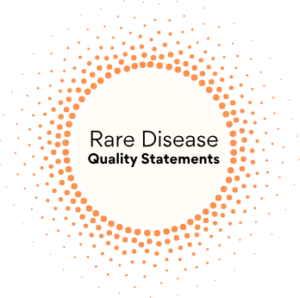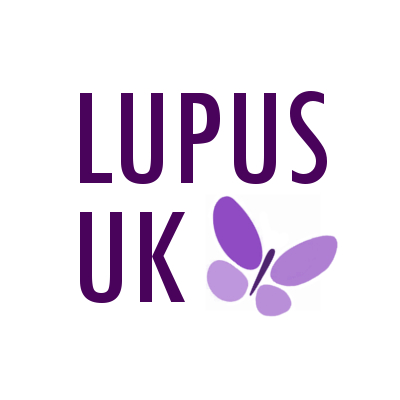What does good care and treatment for rare diseases mean to you?

The Rare Disease Quality Statement Project is asking the rare disease community to complete their survey, to develop a set of statements which clearly set out what high-quality, sustainable care, treatment, and management look like for rare diseases.
If you are a patient, carer, healthcare professionals, policymaker, or represent a patient organisation, they want to hear from you. They want to hear from as many people across the rare disease community as possible, so that the statements reflect what really matters to people living with rare diseases.
To complete the survey, please go to rarediseaseqs.org. The deadline is the 30th November 2024.
You can find out more about why the survey is important below.
What are Quality Statements?
“Quality Statements” are statements which clearly say what high-quality, sustainable care, treatment, and management looks like for rare diseases. The idea is that they can then be used to develop a “Quality Standard” to help measure and improve care for rare diseases.
What is a Quality Standard?
A quality standard is a set of Quality Statements and information on how to measure progress or how well the Statements are being met. They are not a legal document, so they do not have to be used or followed, but in practice are used by a range of organisations and regulators to help identify and measure good quality care, identify gaps in services, and develop new services. People living with health conditions can also use them to understand what good quality care should look like for their condition.
You can find out more about Quality Standards on the NICE website.
Do Quality Standards and Quality Statements apply to the whole of the UK?
Quality Standards are developed by NICE and apply to health and social care in England and Wales. The Scottish government and Northern Ireland Executive decides how they apply to Scotland and Northern Ireland.
Quality Statements, such as these being developed for rare diseases, are designed to be used in any nation of the UK to help them improve care and treatment for people with rare diseases. The team leading the development of these statements includes people from all nations of the UK.
What difference will Quality Standards make?
Quality Standards may help to improve care and treatment for rare diseases. They do this by setting out clearly what high-quality care and treatment looks like, which makes it easier to measure whether services are providing safe and effective services, to design services, or to see where there are gaps in care or services, for example. As they are developed collaboratively with patients and patient representatives, it can also help to ensure that the voices of those affected by rare diseases are considered at a policy-making level.
How are these Quality Statements being developed?
The Statements are being led by a group of clinicians, policymakers, and patient representatives all involved in rare diseases in one or more nations of the UK. There is at least one professional representative from all four nations – England, Wales, Scotland, and Northern Ireland.
There are different phases to developing these statements, including reviewing existing literature and reaching out to the rare disease community to ensure the statements reflects the whole rare disease community.
You can find out more about the team leading the development, what they’re done so far, and their plans, on the Rare Disease Quality Statements website.
 How can I have my say on the Quality Statements?
How can I have my say on the Quality Statements?
You can take part in the survey on the Quality Statements online.
You can take part if you are over the age of 18 and:
- Someone who has a rare disease
- A family member or carer of someone with a rare disease
- A charity working with people with rare diseases
- A healthcare professional working with people with rare diseases
If you are under the age of 18, a parent or carer has to complete the survey on your behalf.
The survey closes on 30th November 2024.
You can find out more about the survey, the team leading the development, what they’re done so far, and their plans, on the Rare Disease Quality Statements website.

